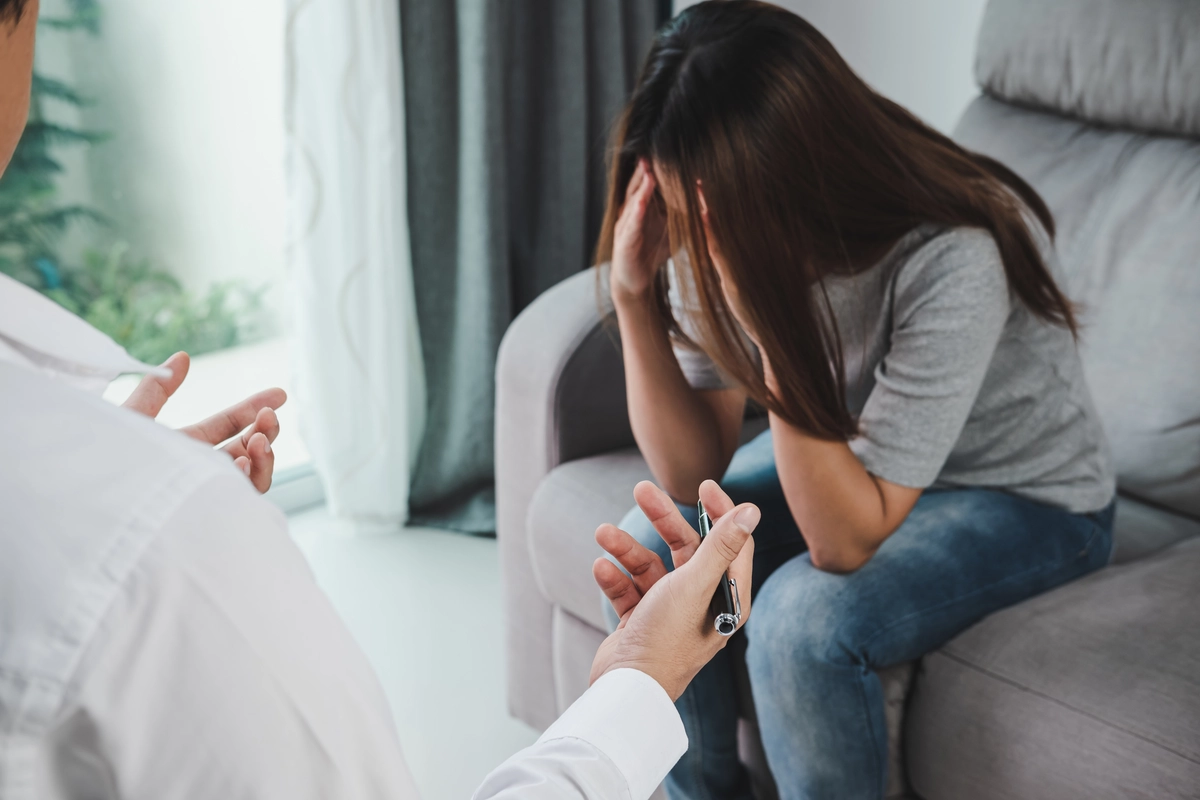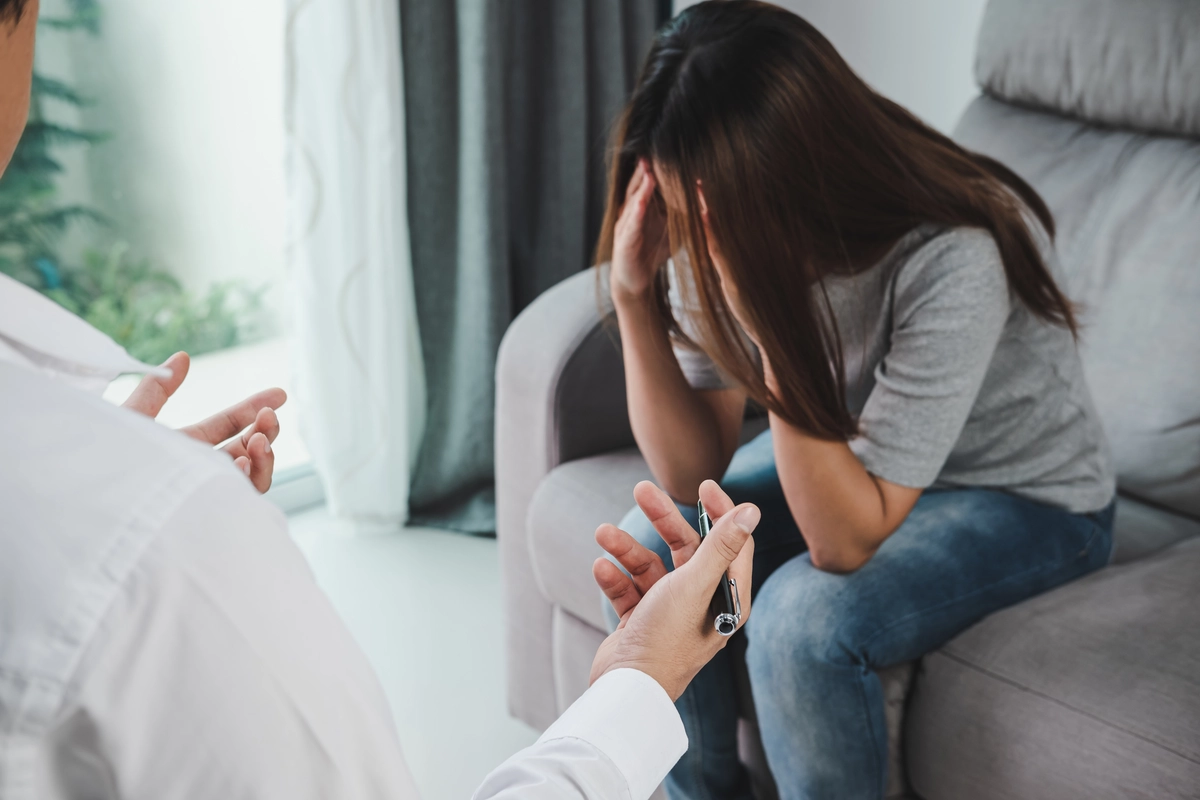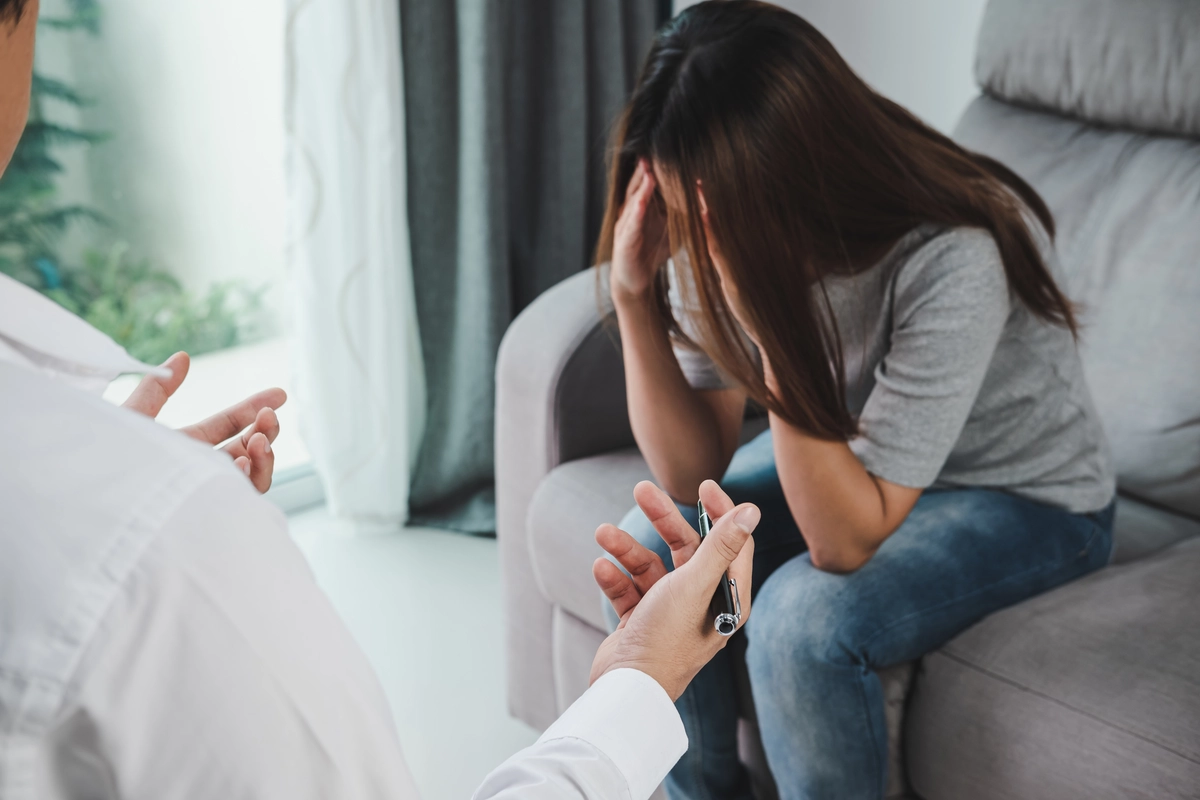24/7 Helpline:
(866) 899-221924/7 Helpline:
(866) 899-2219
Learn more about Bipolar Disorder Treatment centers in Faulkner County
Bipolar Disorder Treatment in Other Counties

Other Insurance Options

CareFirst

Amerigroup

Regence

Molina Healthcare

Medical Mutual of Ohio

Health Choice

American Behavioral

Multiplan

Excellus

United Health Care

Sutter

Access to Recovery (ATR) Voucher

Evernorth

Kaiser Permanente

UnitedHealth Group

Anthem

MVP Healthcare

Sliding scale payment assistance

Meritain

Oxford

Conway Behavioral Health Hospital
Conway Behavioral Health Hospital is a medical facility specializing in treating behavioral disorder...

The Mental Health Center
The Mental Health Center is a private rehab located in Conway, New Hampshire. The Mental Health Cent...

Anazao Community Partners
Anazao Community Partners is an accredited behavioral health treatment center in Wooster, OH for chi...

Noble House
Noble House offers inpatient services for men ages 18 and over, with a Mental Health diagnosis and/o...

OneEighty – Spink Street
OneEighty - Spink Street offers outpatient services for individuals with a Mental Health diagnosis a...

Christian Childrens Home
Christian Childrens Home is a private rehab located in Wooster, Ohio. Christian Childrens Home speci...

Counseling Center
Counseling Center is a private rehab located in Wooster, Ohio. Counseling Center specializes in the ...

OneEighty – E. Milltown Rd
OneEighty - E. Milltown Rd offers outpatient services for individuals with a Mental Health diagnosis...

Waccamaw Mental Health Center
Waccamaw Mental Health Center is a public rehab located in Conway, South Carolina. Waccamaw Mental H...











Counseling Associates – Donaghey Avenue
Counseling Associates - Donaghey Avenue provides outpatient behavioral health services to children a...

Conway Therapy Services
Conway Therapy Services is a private rehab located in Conway, Arkansas. Conway Therapy Services spec...

Counseling Associates – Salem Road
Counseling Associates - Salem Road provides outpatient behavioral health services to children and ad...

Freedom House
Freedom House is a private rehab located in Conway, Arkansas. Freedom House specializes in the treat...

AA – Alcoholics Anonymous
AA – Alcoholics Anonymous is a non-profit rehab located in Conway, Arkansas. AA – Alcoholics Anonymo...

Counseling Associates – Alcohol Safety Program
Counseling Associates - Alcohol Safety Program is a private rehab located in Conway, AR. Counseling ...

Phoenix Recovery Center for Men
Phoenix Recovery Center for Men is a dedicated drug and alcohol rehab facility located in Conway, Ar...

Birch Tree Communities
Birch Tree Communities is a private rehab located in Conway, Arkansas. Birch Tree Communities specia...

Central Arkansas Veterans Healthcare System – Conway Outpatient Clinic
Central Arkansas Veterans Healthcare System - Conway Outpatient Clinic is a public clinic located in...

Tri County Community Action
Tri County Community Action is an outpatient substance abuse treatment dedicated to help individuals...

Village Network
Village Network is a private rehab located in Wooster, Ohio. Village Network specializes in the trea...
Beacon House
Beacon House offers inpatient services for women ages 18 and over, with a Mental Health diagnosis an...

Discipline and Rehabilitation Center
Discipline and Rehabilitation Center is a private rehab located in Wooster, Ohio. Discipline and Reh...








































































































